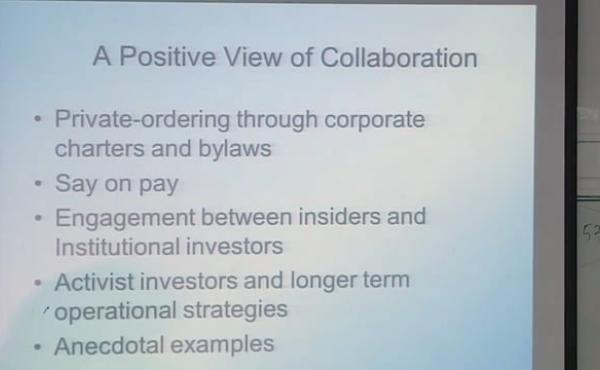Shareholder Collaboration
Abstract
Two models of the firm dominate corporate law. Under the managementpower model, decision-making power rests primarily with corporate insiders (officers and directors). The competing shareholder-power model defends increased shareholder power to limit managerial authority. Both models view insiders and shareholders as engaged in a competitive struggle for corporate power in which corporate law functions to promote operational efficiency while limiting managerial agency costs.
As scholars and judges continue to debate the appropriate balance of power between shareholders and insiders, corporate practice has moved on. Increasingly, the insider– shareholder dynamic is collaborative, not competitive. This Article traces the development of insider–shareholder collaboration, explaining how collaboration, which originated in the venture capital context, has expanded into public companies. This expansion, the Article argues, is due to the increasing importance of partial information problems that, for many firms, have grown costlier than agency costs. Using insights from the economics of information, the Article shows how collaboration promotes the production and aggregation of information from insiders and shareholders, adding value that is lost under unilateral decision-making.
Modern corporate law and corporate governance are poorly prepared to handle insider– shareholder collaboration, however. The collaborative process places novel demands on traditional obligations of confidentiality and fiduciary duty as well as complicating the meaning of conflicts of interest. These concepts must be rethought to enable productive collaboration while limiting the potential that the collaborative process can be manipulated to permit collusive behavior or self-dealing.













